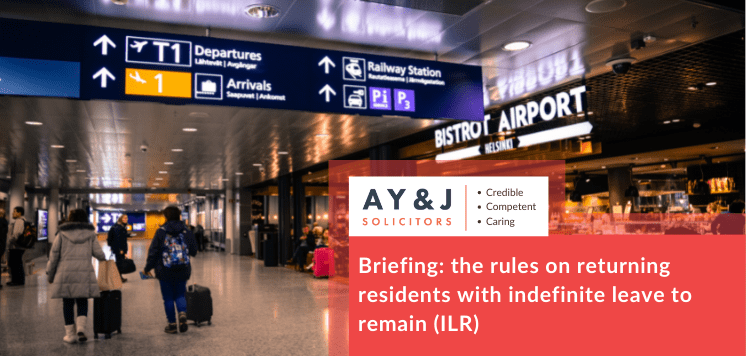Disclaimer: The information in this blog is accurate as of its publication date. Any updates after that date are not reflected here.
According to a report by Mckinsey, around 7.6 million jobs are at risk of being affected by the COVID-19 lockdown in the UK, and nearly 50% of all the jobs at risk are in occupations earning less than £10 per hour.
There has been a significant reduction in the Skilled Workers moving to the UK due to the ongoing COVID-19 pandemic and its continued implications. However, the UK Home Office has been very considerate about giving temporary relaxations to workers and sponsors during the COVID-19 pandemic.
In this blog, we will discuss at length the implications of COVID-19 on Skilled Workers, sponsors and a way forward.
Worker’s absence
Owing to the coronavirus pandemic, many employees have contracted the infection. Therefore, the Home Office will not be taking any enforcement action on those sponsors who are continuing to sponsor employees absent from work due to the coronavirus.
Furthermore, employers are not required to report such cases to the Home Office. This can include the employees’ absences due to illness, need to isolate or inability to travel due to travel restrictions.
The employer need not to withdraw sponsorship if an employee is absent from work without pay for more than 4 weeks because of prevailing reasons due to coronavirus. The employer may, however, reduce their income temporarily.
Employees that have received a Certificate of Sponsorship but don’t have a visa yet
The employees can still apply for the visa if they have been issued the Certificate of Sponsorship (CoS), and then it has become invalid because the employee was unable to travel as a result of coronavirus. The Home Office has confirmed that they will not automatically refuse such cases.
The Home Office will be considering such events on a case-by-case basis.
Employees that are waiting for a work visa
Many prospective employees have been issued with a Certificate of sponsorship and submitted their application but are waiting for the decision. The visa could be:
- Skilled Worker visa
- Health and Care Worker visa
- Intra-company Transfer visa
- T2 Worker visas
- T5 Temporary Worker visas
Employers have been enabled to allow their prospective employees to begin working before their visa application has been decided if they meet the following criteria:
- The employers have assigned them a CoS, and either of the following is true;
- They made their application under the Health and Care visa
- The Certificate of Sponsorship (CoS) was assigned before 19.01.2021
- The employee submitted their application before their visa expires
- The role they are employed in is the same as the one mentioned on their CoS
Sponsorship duties of the employer
The sponsorship responsibilities for an employee begin from the date you have assigned them a Certificate of Sponsorship (CoS), not from the date that their application is granted.
You will not be able to report information to the Home Office using the sponsorship management system, but the employer must record and maintain all the relevant information set out in the sponsor guidance on their HR management systems.
Any changes that occur and can impact the prospective employee’s visa application must be updated on the Certificate of Sponsorship as usual.
If the prospective employee’s application is rejected as invalid or refused, the employer must terminate their employment.
Work from home
Sponsors do not have to notify the Home Office if their sponsored employees are working from home due to the coronavirus pandemic.
Other changes in their working arrangements must be reported as usual.
Reduced salaries
If an organisation has reduced its size or ceased trading in the UK, it can temporarily reduce the pay of its sponsored employees in line with the government job support schemes. All of the sponsored workers are eligible for these schemes in the same way as any resident worker.
Any pay reductions must be part of a company-wide policy to avoid redundancies and in which all workers are treated equally. Therefore, the employer will not be able to reduce the sponsored workers’ pay rate for the hours they work below the going rate for their occupation, subject to any rebate they qualified for when they were granted permission.
These reductions must be temporary, and the employee’s pay must return to at least previous levels once these relaxations have ended on 31 August 2021.
Pre-registration of nurses and midwives
The end date for pre-registration nurses and midwives on the Nursing and Midwifery Council’s temporary register to sit for the Occupational Structured Clinical Examination (OSCE) has been further extended to 30 September 2021. If they could not pass the examination on the first attempt, they will have until 31 December 2021 to pass the exam.
So, the sponsors do not need to stop sponsoring the pre-registration of nurses and midwives if they could not sit their first attempt at the OSCE within 3 months and achieved full registration within 8 months.
Can employers make use of the coronavirus job retention scheme
The UK government’s coronavirus job retention scheme has been further extended until 30 September 2021. From 1 July 2021, the government will pay 70% of wages up to a maximum limit of £2187.50 for the hours the employee is on furlough.
Employers must top up their employees’ wages to ensure they receive 80% of the pay (up to £2,500) in total for hours spent when the employee is on furlough. The limits are proportional to the hours not worked.
Suppose the employer cannot maintain its staff because their operations have been severely affected by the coronavirus (COVID-19) pandemic. In that case, they can put their employees on furlough and apply for a grant to cover a portion of their usual monthly wage costs.
All employers with a UK, Channel Island or Isle of Man bank account and a UK PAYE scheme can seek the grant. They do not need to have previously claimed for their employees before 02 March 2021 to claim for the period from starting on or after 1 May 2021.
Employers are allowed to furlough employees for any amount of time and with any working schedule and can still claim the grant for hours not worked.
A way forward: The temporary relaxation is being offered to the employees, and the employer is sure to help their business and workforce.
These relaxations, however, are temporary and must not be considered permanent under the COVID-19 pandemic.
This blog outlines how employers and employees can adjust to the temporary changes in work from home, reduced wages, and seeking grants under the coronavirus job retention scheme.









